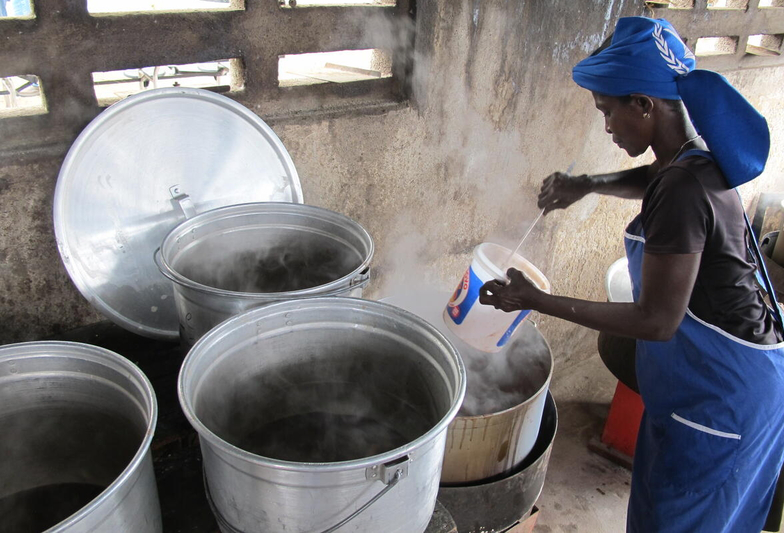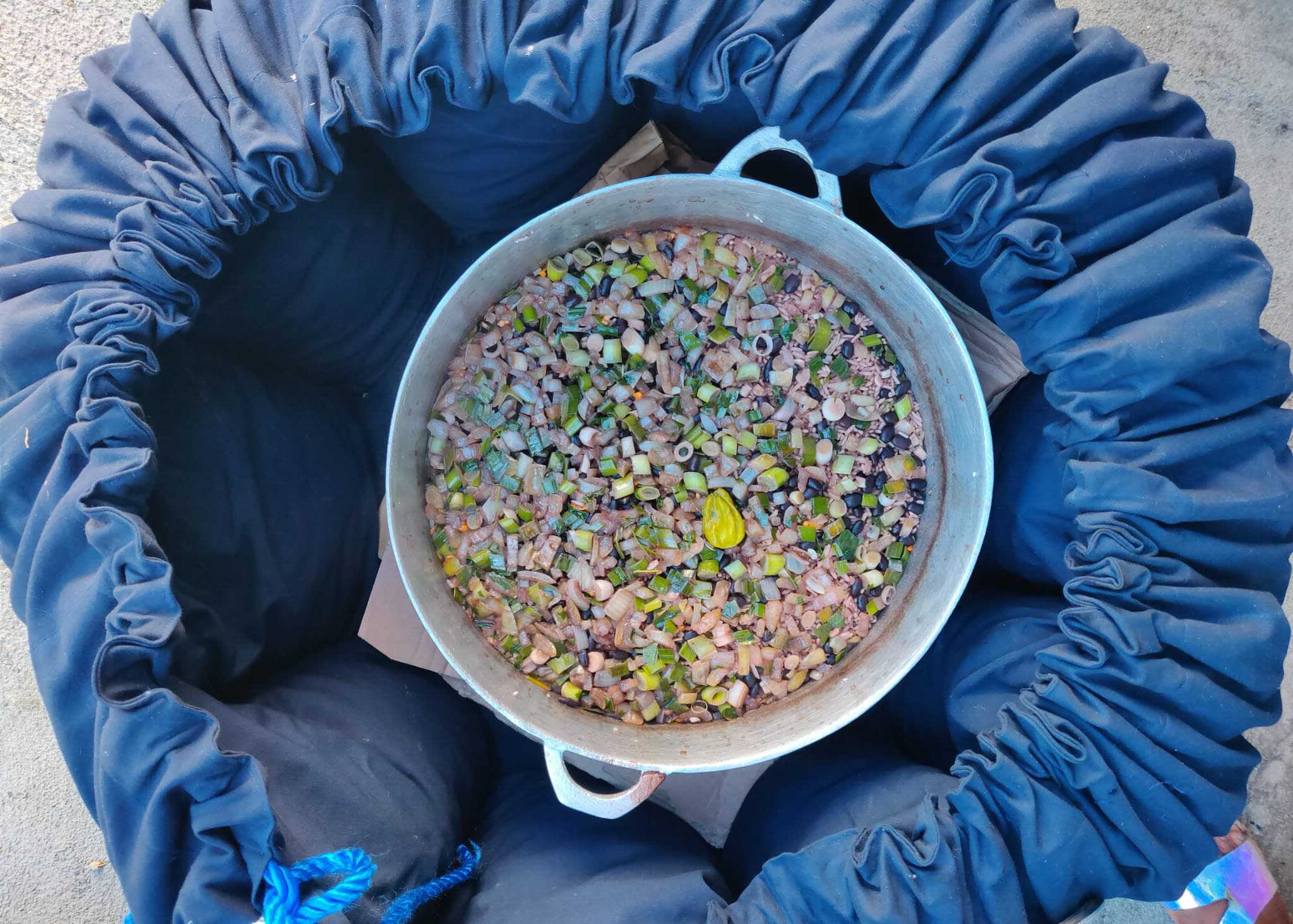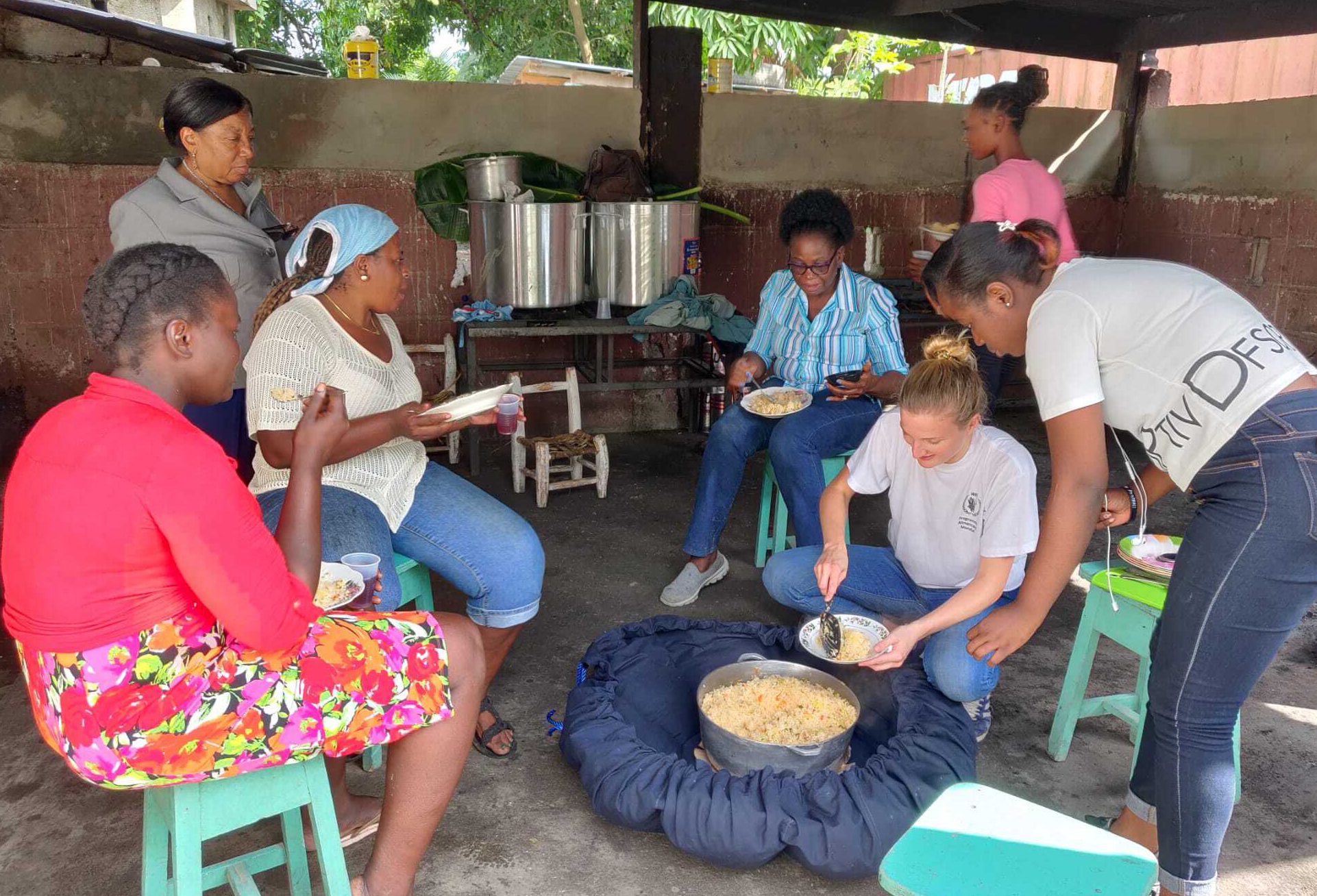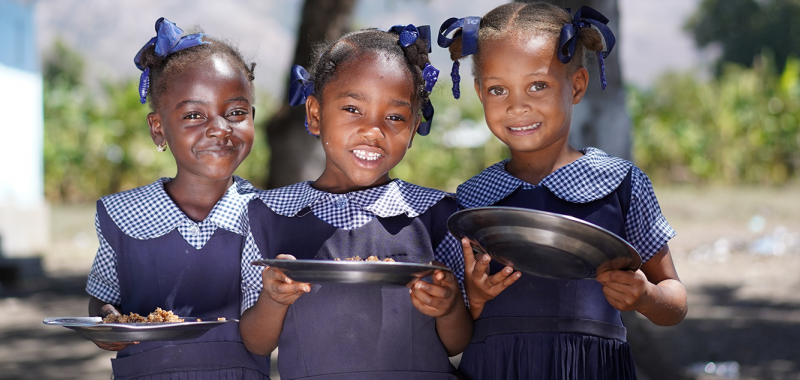Project overview
The World Food Programme (WFP) promotes clean and modern cooking in school canteens. WFP’s Clean Cooking project deploys innovative low-cost heat retention bags in school canteens in Haiti, reducing the schools’ energy needs by up to 70 percent.
The problem
Globally, 2.6 billion people lack clean cooking access. In Haiti, 95 percent of schools cook on open fires, resulting in toxic smoke, burn injuries and negative environmental impacts. This traditional cooking method also incurs high energy costs for schools diverting funds from other areas.

The solution
Clean Cooking Haiti introduces clean and modern cooking solutions in schools.
As part of this initiative, WFP is piloting heat retention bags to support schools’ transition to cleaner energy sources and reduce their energy needs. Heat retention bags are locally produced by women in Port au Prince using upcycled plastic waste widely used in households and schools.

The way forward
Throughout WFP’s Sprint Programme, the Clean Cooking conducted trainer coaching, workshops and demonstrations for WFP staff, cooperating partners and schools. To support this education, the team produced and distributed sensitization materials, including 12 videos and brochures in French and Creole, to explain the use of heat retention bags.
To maintain cultural sensitivity, 100 percent Haitian recipes were cooked in WFP school canteens (Home Grown School Feeding and traditional) and Haitian households.
The team also developed and conducted baseline assessment to inform scale up of the innovation, including evaluating the performance of the technology, its adoption by the users and its impact on fuel savings for schools.
Building on the learnings from the pilot project, the team aims to scale the solution to all schools (approximately 1,300 schools) supported under the WFP’s School Feeding Programme in Haiti.




